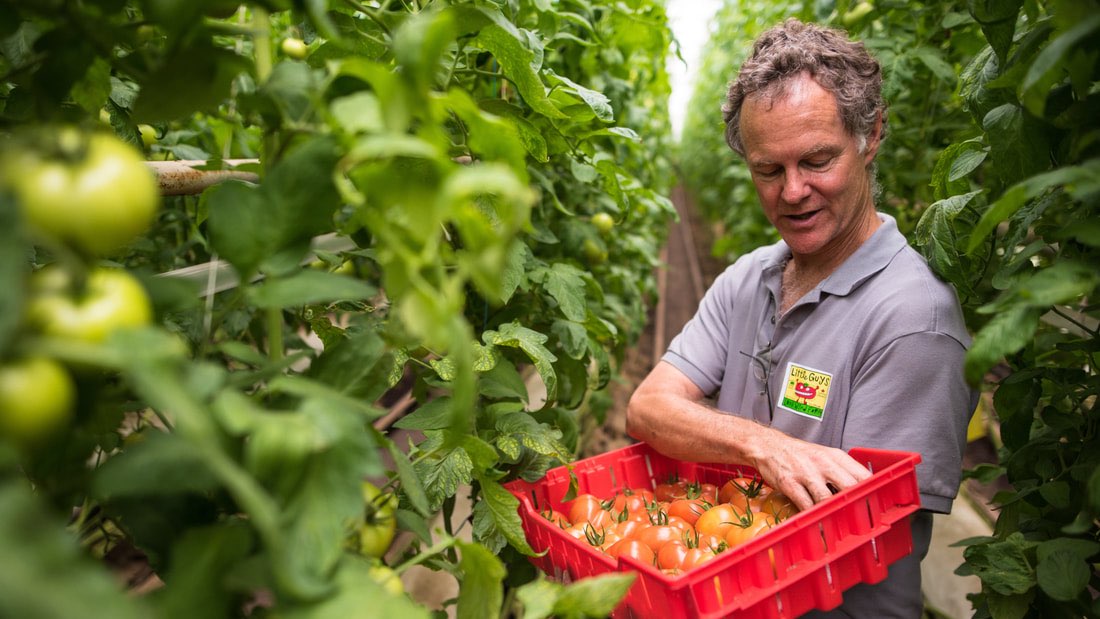Table of Contents
Since running Tanibox, I have met many farmers who are pretty successful in running their farming businesses. By having deep conversations with them, it’s not that they know how to grow pretty vegetables. It’s that these farmers have a deep understanding of how a business should work.
I’ve come to this conclusion:
If you can’t make a living by farming, then you’re NOT a great farmer. You might be a great grower, but you’re not a good farmer nor a successful one.
Some of you might agree or disagree with. It is very debatable. But for me, it makes more senses. You’ll get them later after reading this post.
I lived in the suburban area of Jakarta called Bintaro for about 3 years. In my neighbourhood, there was a hydroponic farm business named Agro Gemilang (AG). They grew several varieties of leafy greens such as lettuce, Asian spinach, water spinach, kale, tomato, herbs, and many more. There were more than 10 types of crops grown in a less than 500-meter square greenhouse. Their vegetables taste amazing! Since they were so clean and used no pesticides at all. The colours are so bright and appealing. The leafy greens are so crunchy, and I’ve never tasted any other crunchier vegetables before. The farm manager was an agricultural graduate from IPB, the largest agriculture university in Indonesia. The best one. She had 3 men on the operation, and they were so good and really know what it takes to produce such high-quality crops.
But then, after about 2 years in operation, they have to close the farm. Why? They can’t make a living out of it!
Can you imagine how much money the owner has poured to build that kind of greenhouse infrastructure, running hydroponic operation 24/7, paid their labours good, and still running out of business?
It’s because the owner didn’t include the business factor in it. He just focused on the production and the selling point of hydroponic farming. That hydroponic vegetables are healthy, clean, and need no pesticide. But actually, people do not really care at all. They don’t understand the difference since they were not properly educated. And that led to their business failure.
What Does It Take To Be Successful in Farm Business?
I met an old farmer a couple of months ago. His name is Mr Rudy. He is 63 years old. He was a successful chicken farmer. I think of him as a mentor. He produced chicken eggs and distribute them to hundreds of traditional and modern markets in dozen of cities in Java island (Indonesia). He started his business just after graduated from MSc and MBA in one of Germany’s best university in the ’60s. Around 1994, he already had 12 chicken farms, and on each farm, there were 10.000 chickens. That’s a lot of chicken, right? And for sure, he can’t manage them without having a proper management system. So he applied a loan to a bank, to modernise his farm.
The bank approved his loan application. He finished renovating all of his farms by 1997. He imported chicken farm technologies from Germany. He created a desktop program (application) to help him manage all of his farms. He put a communication channel using handy talkie (or walkie talkie) to contact his workers at each farm while he just sat in his headquarter office. The communication channel allowed him to take notes on the condition on the farms, the tasks that should be done daily by his worker, and any kind of information that needs to be kept. It wasn’t cheap at all!
In 1998 the worst monetary crisis occurred in Indonesia. And even though his business has also been affected very badly by the crisis, he has not lost the knowledge and experience he has had for years running this business. He has the recorded data that is stored safely and neatly and can be used when needed. The notes he made brought repetitive patterns that are still being used to date.
A few years ago he established an agricultural learning institution for local farmers in his area, where he shared his knowledge and business experience there. He is very well known in Central Java because he helps create new farmers and improve their business skills there. He does not only teach those people on how to run a better chicken farm, but he also teaches them how to run a sustainable business. That’s what you can call a successful farmer!
Key Skills and Attributes to be A Successful Farmer
And of course, there are also some key skills and attributes that you must have to stay in the farming business. Those are:
- Organisational Skills
- Management Skills
- Business Savvy
- People Skills
- Analytical and Critical Thinking Skills
- A Mechanical and Systematic Mind
- Life Long Learner
- A Cool Head
You can read more about it on the link below.
Important Skills and Attributes to be A Successful Farmer
Don’t worry. Running a farm business is not any different than any other kind of business. You just need to understand the “business” equation, and what you need to learn firsthand.



Let's discuss!
comments powered by Disqus